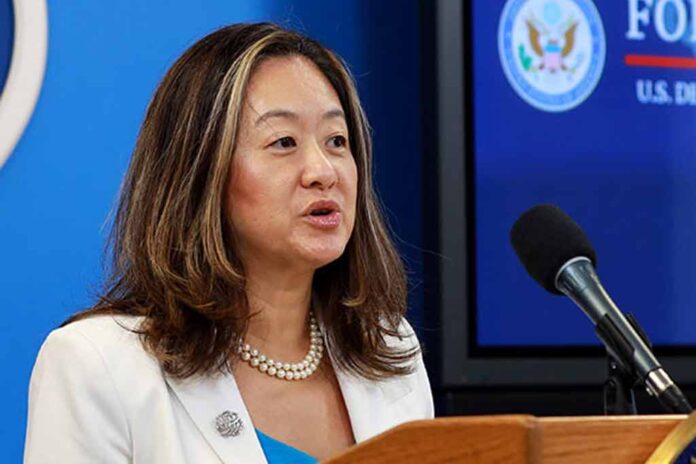By: Staff Writer
Washington presses Colombo to reform business climate and remove hidden barriers
August 17, Colombo (LNW): Sri Lanka’s ability to deepen its trade and investment relationship with the United States may depend on how quickly it can dismantle the hidden non-tariff barriers that continue to frustrate exporters and investors.
U.S. Ambassador Julie Chung, addressing business leaders at the Ceylon Chamber of Commerce this week, said Colombo must act swiftly to enhance trade facilitation and create a more predictable environment for international companies.
Although Sri Lanka’s formal tariff structure is not excessively high compared to regional competitors, businesses complain that layers of red tape make the actual cost of trade much steeper. Customs clearance processes are still heavily paper-based, requiring multiple approvals and causing lengthy delays at ports.
Import licensing requirements and regulatory permits remain opaque, particularly in sectors such as pharmaceuticals, food items, and agricultural products. At times, sudden government decisions—such as overnight import bans—have unsettled global suppliers and undermined business confidence.
Ambassador Chung pointed out that these barriers erode Sri Lanka’s competitiveness at a time when U.S. companies are actively looking to diversify supply chains in South Asia. Countries such as Vietnam and Bangladesh have already capitalized on this shift by simplifying procedures and investing in trade infrastructure, while Sri Lanka risks being left behind unless urgent reforms are undertaken.
The United States remains one of Sri Lanka’s most important export markets, with apparel, tea, and rubber products continuing to dominate shipments. Yet American firms interested in entering new sectors such as energy, pharmaceuticals, and technology frequently cite excessive bureaucracy and unpredictable policy changes as deterrents.
The suspension of U.S. tariff preferences under the Generalized System of Preferences (GSP) scheme has further narrowed Sri Lanka’s competitive edge, making the reduction of non-tariff barriers all the more critical to sustaining export growth.
At her meeting with Ceylon Chamber officials including newly appointed Chairman Krishan Balendra, Vice Chairman Bingumal Thewarathanthri and Deputy Vice Chairman Vinod Hirdaramani, Ambassador Chung commended Sri Lanka’s willingness to pursue constructive negotiations aimed at building a “fair, balanced and reciprocal” trade partnership.
She stressed that the current global trade realignment represents a window of opportunity for Sri Lanka to position itself as an attractive destination for American business, provided it can streamline procedures, increase transparency and modernize trade Infrastructure.For Sri Lanka, the message is clear: dismantling bureaucratic obstacles is not simply a matter of administrative efficiency, but a prerequisite for attracting investment and ensuring that the island remains relevant in a shifting global trade landscape
